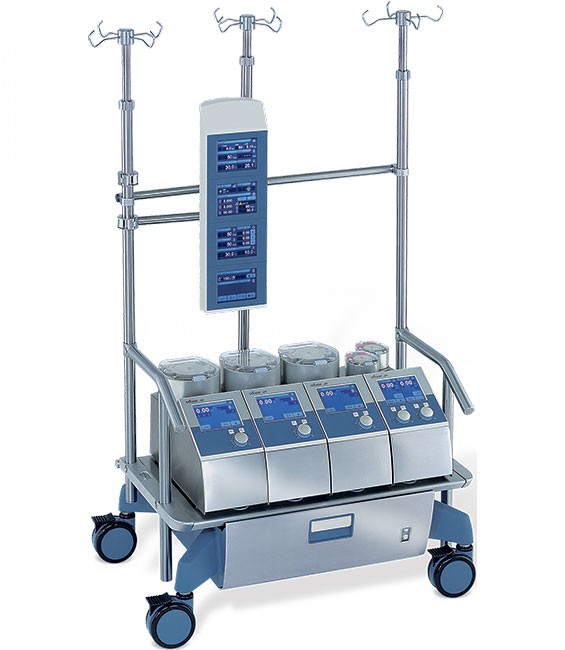
| Properties | Details |
|---|---|
| SFDA Classification | Class IV |
| Purpose of Use | It is used during some surgeries to take over the function of the heart and lungs. During a cardiac arrest, a heart-lung machine (Heart Lung Machine) is used to provide blood circulation and oxygen. |
| Work Location & End-User | Work Location: operating room End User: Clinical Cardiac Perfusion Specialist (Perfusionist) |
| Parts & Accessories | • 5 Pump Console. • Temperature Control Module (Hypo-Hyper thermia unit) HEMOTHERM UNIT. • Monitors a) Pressure monitor – arterial and cardioplegia with transducers. b) Timer - at least three timers. c) Temperature monitor with at least two probes (Probe). d) Cardioplegia pump should have display of total volume of each infusion along with delivery time. • Blender a) Air- Oxygen Blender with hoses and Flow meter. • Safety devices: a) Level Sensor b) Ultrasonic air sensor (optional) • Stainless Steel Clips - 10 • Stainless steel intra cardiac suckers - 4 adult & 4 Pediatric |
| Operation | It carries blood from the upper-right chamber of the heart (the right atrium) to a special reservoir called an oxygenator. Inside the oxygenator, oxygen bubbles up through the blood and enters the red blood cells. This causes the blood to turn from dark (oxygen-poor) to bright red (oxygen-rich). Then, a filter removes the air bubbles from the oxygen-rich blood, and the blood travels through a plastic tube to the body’s main blood conduit (the aorta). From the aorta, the blood moves throughout the rest of the body. |
| Common Problems | • In the damaged parts and sensors. • Centrifugal motors may make noises and squeaks. • The roller pumps require sufficient tubing retention force to prevent migration during use. |
| Manufacturers | • Medtronic • Sorin • Terumo • Stockert |
| Sources | • Saudi Food and Drug Authority Document • Encyclopedia • The Association for the Advancement of Medical Instrumentation (AAMI) • National Medical Supplies Fund • TEXAS HEART INSTITUTE • Soma Technology |
